#hong kong basic law
Explore tagged Tumblr posts
Text
youtube
Hong Kong passes new security law, raising max. penalty for treason, insurrection to life in prison, March 19, 2024
Hong Kong’s opposition-free legislature has unanimously passed new homegrown security legislation, making treason, insurrection and sabotage punishable by up to life in prison, and rejecting Western criticism that the law would further restrict the city’s freedoms. Hong Kong Free Press
youtube
Hong Kong adopts contentious law giving government more power to quash dissent, March 19, 2024
Hong Kong's legislature unanimously passed a new national security law on Tuesday ( March 19), introducing penalties such as life imprisonment for crimes related to treason and insurrection, and up to 20 years' jail for the theft of state secrets. France 24
#hong kong#hong kong basic law#article 23#politics#hong kong national security law#China#John Lee#Hong Kong Free Press#France 24#news#Andrew Leung#Chris Tang#Legistlative Council#Hong Kong Journalists Association#Hong Kong Bar Association
3 notes
·
View notes
Text
no cus i'm actually mad about this. speaking as an asian phannie (singaporean), anyone in SEAsia who's been watching everything that happens in TIT would know damn fucking well that it would not go well if dnp did the show in SEAsia.
i'm not saying he's right for leaving it at "government said no homo" but you know what i am saying? that he's a 100% correct. the problem IS that our governments not only say 'no homo', but also have painful religious laws and a very backwards older generation that is even less tolerant than those outside of asia.
in singapore, there was section 377a of our penal code, which made sex between two men (and by extension, people of the same sex) completely illegal. this part was repealed last year, but at the same time, our government essentially made a change to the definition of "marriage" in our constitution that 'locked' the definition of marriage as "a union between man and woman". this basically means that making changes to completely decriminalise being LGBT+ in the future is going to be much more difficult for us.
on TOP of all of this, singapore might not have a central/national religion, but that doesn't mean that the religious laws don't exist here. even if DNP managed to book a TIT show here, it wouldn't go through, solely because the sister daniel and father philip parts of the show would've been turned away by the religious boards here. similar cases have happened before, and it's not a stretch for me to say that it very well could happen with them too.
mind you, this is in singapore. i can't say much about hong kong, but i can safely make the statement that it'd be even more difficult in indonesia.
he shouldn't have left it at "govt. said no homo", but every non-asian phannie here who says that "no homo isn't the problem" is completely oblivious to things related to LGBT+ in asia and given the context now, SEAsia ESPECIALLY.
598 notes
·
View notes
Text
My alternate universe fantasy colonial Hong Kong is more authoritarian and just as racist but less homophobic than in real life, should I change that?
@floatyhands asked:
I’m a Hongkonger working on a magical alternate universe dystopia set in what is basically British colonial Hong Kong in the late 1920s. My main character is a young upper middle-class Eurasian bisexual man. I plan to keep the colony’s historical racial hierarchy in this universe, but I also want the fantasy quirks to mean that unlike in real life history, homosexuality was either recently decriminalized, or that the laws are barely enforced, because my boy deserves a break. Still, the institutions are quite homophobic, and this relative tolerance might not last. Meanwhile, due to other divergences (e.g. eldritch horrors, also the government’s even worse mishandling of the 1922 Seamen's Strike and the 1925 Canton-Hong Kong Strike), the colonial administration is a lot more authoritarian than it was in real history. This growing authoritarianism is not exclusive to the colony, and is part of a larger global trend in this universe. I realize these worldbuilding decisions above may whitewash colonialism, or come off as choosing to ignore one colonial oppression in favor of exaggerating another. Is there any advice as to how I can address this issue? (Maybe I could have my character get away by bribing the cops, though institutional corruption is more associated with the 1960s?) Thank you!
Historical Precedent for Imperialistic Gay Rights
There is a recently-published book about this topic that might actually interest you: Racism And The Making of Gay Rights by Laurie Marhoefer (note: I have yet to read it, it’s on my list). It essentially describes how the modern gay rights movement was built from colonialism and imperialism.
The book covers Magnus Hirschfeld, a German sexologist in the early 1900s, and (one of) his lover(s), Li Shiu Tong, who he met in British Shanghai. Magnus is generally considered to have laid the groundwork for a lot of gay rights, and his research via the Institut für Sexualwissenschaft was a target of Nazi book-burnings, but he was working with imperial governments in an era where the British Empire was still everywhere.
Considering they both ended up speaking to multiple world leaders about natural human sexual variation both in terms of intersex issues and sexual attraction, your time period really isn’t that far off for people beginning to be slightly more open-minded—while also being deeply imperialist in other ways.
The thing about this particular time period is homosexuality as we know it was recently coming into play, starting with the trial of Oscar Wilde and the rise of Nazism. But between those two is a pretty wildly fluctuating gap of attitudes.
Oscar Wilde’s trial is generally considered the period where gay people, specifically men who loved men, started becoming a group to be disliked for disrupting social order. It was very public, very scandalous, and his fall from grace is one of the things that drove so many gay and/or queer men underground. It also helped produce some of the extremely queercoded classical literature of the Victorian and Edwardian eras (ex: Dracula), because so many writers were exploring what it meant to be seen as such negative forces. A lot of people hated Oscar Wilde for bringing the concept to such a public discussion point, when being discreet had been so important.
But come the 1920s, people were beginning to wonder if being gay was that bad, and Mangus Hirschfeld managed to do a world tour of speaking come the 1930s, before all of that was derailed by wwii. He (and/or Li Shiu Tong) were writing papers that were getting published and sent to various health departments about how being gay wasn’t an illness, and more just an “alternative” way of loving others.
This was also the era of Boston Marriages where wealthy single women lived together as partners (I’m sure there’s an mlm-equivalent but I cannot remember or find it). People were a lot less likely to care if you kept things discreet, so there might be less day to day homophobia than one would expect. Romantic friendships were everywhere, and were considered the ideal—the amount of affection you could express to your same-sex best friend was far above what is socially tolerable now.
Kaz Rowe has a lot of videos with cited bibliographies about various queer disasters [affectionate] of the late 1800s/early 1900s, not to mention a lot of other cultural oddities of the Victorian era (and how many of those attitudes have carried into modern day) so you can start to get the proper terms to look it up for yourself.
I know there’s a certain… mistrust of specifically queer media analysts on YouTube in the current. Well. Plagiarism/fact-creation scandal (if you don’t know about the fact-creation, check out Todd in the Shadows). I recommend Kaz because they have citations on screen and in the description that aren’t whole-cloth ripped off from wikipedia’s citation list (they’ve also been published via Getty Publications, a museum press).
For audio-preferring people (hi), a video is more accessible than text, and sometimes the exposure to stuff that’s able to pull exact terms can finally get you the resources you need. If text is more accessible, just jump to the description box/transcript and have fun. Consider them and their work a starting place, not a professor.
There is always a vulnerability in learning things, because we can never outrun our own confirmation bias and we always have limited time to chase down facts and sources—we can only do our best and be open to finding facts that disprove what we researched prior.
Colonialism’s Popularity Problem
Something about colonialism that I’ve rarely discussed is how some colonial empires actually “allow” certain types of “deviance” if that deviance will temporarily serve its ends. Namely, when colonialism needs to expand its territory, either from landing in a new area or having recently messed up and needing to re-charm the population.
By that I mean: if a fascist group is struggling to maintain popularity, it will often conditionally open its doors to all walks of life in order to capture a greater market. It will also pay its spokespeople for the privilege of serving their ends, often very well. Authoritarians know the power of having the token supporter from a marginalized group on payroll: it both opens you up directly to that person’s identity, and sways the moderates towards going “well they allow [person/group] so they can’t be that bad, and I prefer them.”
Like it or not, any marginalized group can have its fascist members, sometimes even masquerading as the progressives. Being marginalized does not automatically equate to not wanting fascism, because people tend to want fascist leaders they agree with instead of democracy and coalition building. People can also think that certain people are exaggerating the horrors of colonialism, because it doesn’t happen to good people, and look, they accept their friends who are good people, so they’re fine.
A dominant fascist group can absolutely use this to their advantage in order to gain more foot soldiers, which then increases their raw numbers, which puts them in enough power they can stop caring about opening their ranks, and only then do they turn on their “deviant” members. By the time they turn, it’s usually too late, and there’s often a lot of feelings of betrayal because the spokesperson (and those who liked them) thought they were accepted, instead of just used.
You said it yourself that this colonial government is even stricter than the historical equivalent—which could mean it needs some sort of leverage to maintain its popularity. “Allowing” gay people to be some variation of themselves would be an ideal solution to this, but it would come with a bunch of conditions. What those conditions are I couldn’t tell you—that’s for your own imagination, based off what this group’s ideal is, but some suggestions are “follow the traditional dating/friendship norms”, “have their own gender identity slightly to the left of the cis ideal”, and/or “pretend to never actually be dating but everyone knows and pretends to not care so long as they don’t out themselves”—that would signal to the reader that this is deeply conditional and about to all come apart.
It would, however, mean your poor boy is less likely to get a break, because he would be policed to be the “acceptable kind of gay” that the colonial government is currently tolerating (not unlike the way the States claims to support white cis same-sex couples in the suburbs but not bipoc queer-trans people in polycules). It also provides a more salient angle for this colonial government to come crashing down, if that’s the way this narrative goes.
Colonial governments are often looking for scapegoats; if gay people aren’t the current one, then they’d be offered a lot more freedom just to improve the public image of those in power. You have the opportunity to have the strikers be the current scapegoats, which would take the heat off many other groups—including those hit by homophobia.
In Conclusion
Personally, I’d take a more “gays for Trump” attitude about the colonialism and their apparent “lack” of homophobia—they’re just trying to regain popularity after mishandling a major scandal, and the gay people will be on the outs soon enough.
You could also take the more nuanced approach and see how imperialism shaped modern gay rights and just fast-track that in your time period, to give it the right flavour of imperialism. A lot of BIPOC lgbtqa+ people will tell you the modern gay rights movement is assimilationalist, colonialist, and other flavours of ick, so that angle is viable.
You can also make something that looks more accepting to the modern eye by leaning heavily on romantic friendships that encouraged people waxing poetic for their “best friends”, keeping the “lovers” part deeply on the down low, but is still restrictive and people just don’t talk about it in public unless it’s in euphemisms or among other same-sex-attracted people because there’s nothing wrong with loving your best friend, you just can’t go off and claim you’re a couple like a heterosexual couple is.
Either way, you’re not sanitizing colonialism inherently by having there be less modern-recognized homophobia in this deeply authoritarian setting. You just need to add some guard rails on it so that, sure, your character might be fine if he behaves, but there are still “deviants” that the government will not accept.
Because that’s, in the end, one of the core tenants that makes a government colonial: its acceptance of groups is frequently based on how closely you follow the rules and police others for not following them, and anyone who isn’t their ideal person will be on the outs eventually. But that doesn’t mean they can’t have a facade of pretending those rules are totally going to include people who are to the left of those ideals, if those people fit in every other ideal, or you’re safe only if you keep it quiet.
~ Leigh
#colonialism#colonization#worldbuilding#alternate history#history#lgbt#china#hong kong#british empire#ask
625 notes
·
View notes
Text

THURSDAY HERO: Ernst Leitz II
German businessman Ernst Leitz II, owner of the Leica camera company, saved hundreds of Jews from the Nazis by “transferring” them to Leica offices around the world. Ernst inherited the Leica camera company from his father in 1920. It was founded as Leitz Camera in 1869 and later took on the name Leica: Lei for Leitz + ca for camera. From the beginning the company stood out for the compassionate way they treated their employees, many of whom were Jewish. Leica provided health insurance, sick leave and retirement pensions.
After Hitler became Chancellor in 1933, the Nuremberg laws were enacted, depriving German Jews of the rights of citizenship. They were banned from schools professions, and lost many of their most basic freedoms. Ernst Leitz began receiving desperate calls from his Jewish employees, begging him to help them escape.
Leitz hatched a brilliant plan. He began “transferring” his Jewish employees, along with their extended families, to Leica sales offices in France, Britain, Hong Kong and the United States. After Kristallnacht, when hundreds of Jewish businesses and synagogues were destroyed throughout Germany, Leitz’ rescue efforts kicked into high gear. At this point, all of the refugees were being sent to America by ocean liner. Once they arrived in New York they were instructed to go to Leica’s office in Manhattan, where they received a Leica camera and a weekly stipend until they were employed. The Jewish refugees went on to careers in photography, camera repair, sales and marketing.
To save Jews, Ernst Leitz risked the company he and his father had lovingly built over 70 year. Indeed, he risked his entire life.
The Leica Freedom Train operated until September 1, 1939, when Germany closed its borders. The Nazis suspected that the Leica company had been illegally helping Jews escape, but they were unable to pin anything on Ernst Leitz, and instead arrested his top executive, Alfred Turk, who was imprisoned until his boss paid a huge bribe for his safe release.
Even after the borders were closed, Leitz’s daughter Elsie Kuehn-Leitz continued helping Jews escape from Germany. Elsie was captured by the Gestapo while smuggling Jewish women into Switzerland, and thrown into prison, where she endured harsh interrogation and frequent beatings before being released in the early 1940’s. By that point, the Nazis had forced the Leica plant to hire 800 Ukrainian women as slave laborers. Elsie spent the rest of the war advocating for these women and working to ensure they had acceptable working and living conditions, and were treated humanely.
Later to be known as the “Leica Freedom Train”, Ernst Leitz’ bold plan saved the lives of 200-300 Jews.
A rare light in a sea of darkness, the Leitz family never wanted publicity for their heroism. The story of the Leica Freedom Train only came out after the last immediate Ernst Leitz family member was dead.
For their courage and sacrifice, we honor Ernst Leitz and his daughter Elsie as this week’s Thursday Heroes.
116 notes
·
View notes
Text









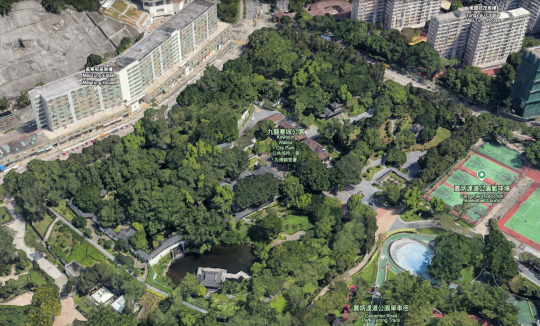
Kowloon Walled City (九龍城寨) in Hong Kong, at its height in the 1970s, was home to an estimated 30,000 to 50,000 people, all crammed into just 6.4 acres of land—making it one of the most densely populated places on Earth. Often referred to as the City of Darkness, it was a place where sunlight barely reached the ground due to the densely packed buildings that stretched skyward in a chaotic maze of makeshift structures.
People living there operated small businesses like fabric shops, hair salons, food vendors, and workshops. These were often run without licenses or official oversight, making it a largely informal economy. There was also a significant presence of illegal businesses, such as drug dealing, gambling, and prostitution, often controlled by the Triads. The residents were largely self-reliant, with local businesses serving the immediate needs of the community, such as food, healthcare, and other basic services. It was an environment where people had to find ways to make a living with little help from the outside world. This underground economy was fueled by the lack of governmental control. Kowloon Walled City existed in a legal gray zone, neither fully under the control of the British colonial government nor China.
For much of its existence, the area was lawless and ruled by the Triads, Hong Kong’s notorious criminal organizations. In the absence of government intervention, the Triads became the de facto authority. Ironically, despite its reputation as a lawless slum, Kowloon Walled City was remarkably safe—thanks to the Triads' influence, it had lower crime rates compared to other areas of Hong Kong. The tightly-knit community, though surrounded by chaos, developed a sense of security and mutual reliance, where, even though the environment was harsh, the people kept to their own and protected each other.
However, by the late 1980s, the city’s dangerous living conditions and lack of basic infrastructure led to mounting concerns. The Hong Kong government decided to demolish the Walled City. It was cleared to make way for the Kowloon Walled City Park, a public space that preserved some remnants of the original structures. By 1994, the area was completely transformed from one of the densest slums in the world to a green park.
Today, Kowloon Walled City is a symbol of both the resilience of its residents and the dangers of a society left unchecked by law. The park stands as a reminder of a place that, while controversial, was a unique, self-sustaining world that existed on the edge of civilization, governed by its own set of rules.
34 notes
·
View notes
Note
(Asking for recs bc you're the only one who gives me exactly what I want)
I don't know if what im looking for even exists, but I'm gonna try asking anyway. I'm looking for something that gives me the vibes of Beyond Evil, but outwardly queer (implied is fine too, ig), or Hannibal, The Devil Judge, High-school frenemy etc. Basically morally grey/unhinged freaks who would die/kill for each other. And I know you don't watch censored Chinese shows but I absolutely adore Word of Honor, The Untamed and Justice in the Dark. All of them involve someone who believes they cannot be redeemed being loved.
I've watched Triage and 4 minutes and I liked those too bc it's very plot heavy and the romance sorta happens as part of the plot. I do not like MAME, or anything adjacent.
Again idek if this ask is even possible. And I apologise for being all over the place. Save me, absolutebl, save me.
Hum, morality chain characters I think is what you're after. Or even murder husbands.
So have you tried SCI Mysteries AKA S.C.I (2018)?

Old guard partly Hong Kong produced censored Chinese BL. They pretend they're something else but they married. Back in the day I found it on YouTube but not sure who officially hosts it now. I would call it Beyond Evil x Trapped + police procedural.
Have you considered Addicted? Odd choice but I suspect it might work for you. Or Where Your Eyes Linger, if you're okay with high school characters.
And there is Long Time No See of course. You should watch that immediately if you haven't already.

Finally, there is Guardian (2018) to consider.
It's an odd creature with extremely chewy world building, but it is very much in the vein of the stuff you like. Not exactly those tropes though. It's so hard to describe. Be warned, you looking at 40 eps of 45 min each. (I think it still holds the crown as longest BL.) It is a BL, just very censored. Still if you want to be distracted for a very long time this might be what you're looking for.

Other's I can think of off the top of my head:
Laws of Attraction* (have you seen this? It certainly has some characters with that perfect unhinged quality to them)
Manner of Death
Lovely Writer (maybe a little)
KinnPorsche maybe?
The Eclipse
3 Will Be Free
Big Dragon
Not Me
The Heart Killers
My Stand-In
The Thai ones simply have less of an edge to them. They will go sappy and only 1/2 of the couple is morally grey but they're there if your desperate.
HIStory Obsessed
HIStory 3: Trapped
HIStory 4: Close to You has a crazy side couple with this dynamic.
Kiseki: Dear to Me (definitely the sides)
I have a sinking suspicion I'm missing something from Taiwan. These also will have less edge.
Tien Bromance from Vietnam has some of this quality to it but it's quite raw.
Some cray cray from Japan:
Happy of the End
Double Mints (if you wanna go unhinged and dark just go there?)
Same Difference AKA Docchi Mo Docchi (the office version) and then there is Beloved Enemy from China, an even more messy office version, and China's Capture Lover which is a nicer version.
Dangerous Drugs of Sex AKA Sei no Gekiyaku (the ultra kinky version)
Dominant Yakuza and Wimpy Corporate Slave AKA Ore-sama Yakuza to Hetare Shachiku: Kuni wo Koeta Jingi Naki Dekiai (it's short tho)
But those are all, ya know, Japan being all Japanish about it. Gotta like their style which is very different from the Korean and Chinese stuff you seem to like best.
Okay hopefully something works? Let me know, okay? I'm curious to see if I was right on anything.
#morally grey characters#murder husbands#asked and answered#Beyond Evil but outwardly queer#The Devil Judge but bL#morally grey BL#morality chain boyfriends#Word of Honor#SCI Mysteries#Beyond Evil x Trapped#Where Your Eyes Linger#Korean Bl#Chinese BL#Long Time No See#Laws of Attraction#Manner of Death#The Eclipse#The Heart Killers#HIStory 3: Trapped#Kiseki: Dear to Me#Docchi Mo Docchi#thai bl#taiwanese bl
42 notes
·
View notes
Text
Our Youth Final Thoughts
Important edit added March, 5, 2025: It was reported (or at least I found out about it today) that the actor who portrayed Haruki in this show, was accused and arrested by Hong Kong police for SAing a translator after a fan event. It should go without saying, but I'll say it anyway, that is absolutely reprehensible behavior, and I hope his victim is able to get justice. If this knowledge affects your desire to watch this show, that's understandable and very fair. Shows like this are the unified works of dozens of creatives, and they do deserve to have their work appreciated, and things like this happening create even more barriers to queer stories being able to be told. I put this in simply because I don't want anyone walking into this story, identifying with this character, and the. Finding out later and being disheartened and disappointed, as I was.
I don't actually think I've posted much about Our Youth on here, but I finished the series over the weekend and wanted to talk about my overall thoughts.
There's so much I loved about the show. It's the first show in quite a while that I actively felt excited to watch every week. It's a trope that I'm often a fan of the 'bad boy with a heart of gold' and the 'nerd'. I did describe the show to a friend as 'what if Bender and Brian from the Breakfast Club ended up together?' which isn't the most inaccurate tagline, but is certainly not the most contemporary.
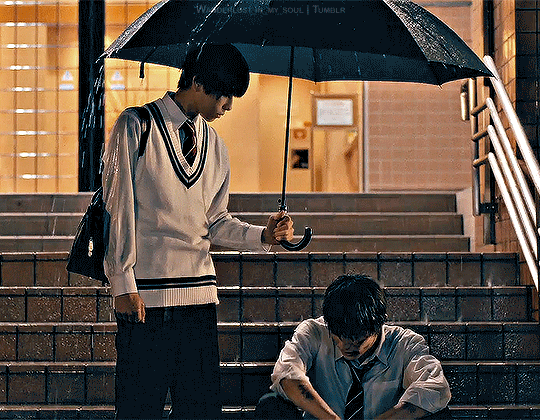
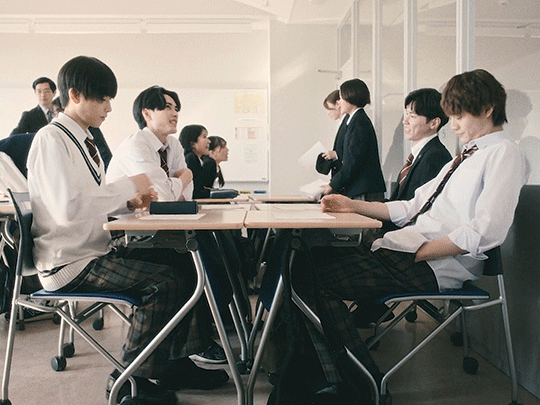
There's so much to talk about. I'll start by saying that one of the things that I really appreciated, that spoke to me about the series is how integral queer media is to the story of the characters. Haruki seeing and finding comfort in a queer film, this film being one of the sources of strength he has as he survives the abuse of his father, and eventually opens a door for him to become a filmmaker and tell his own stories is beautiful. It so clearly showcases how queer media is life-changing and life-saving for many queer youth.
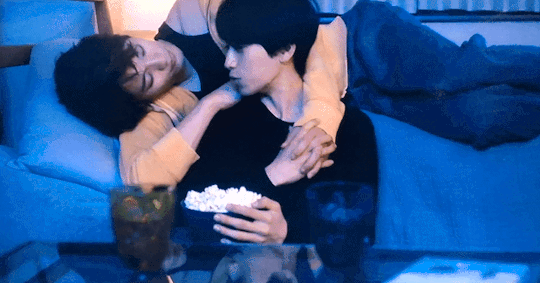
There's also this element of telling your own story. We see that directly with Haruki's films, but it's also present in Jin's writing. I think one of the most heartbreaking things we see there is that Jin's story is never 'public', we don't see Jin take a chance there. But there is value in him finding the courage to give Haruki a chance to read his work. Sometimes there's victory in trusting just one or a few people, it doesn't have to be all or nothing.
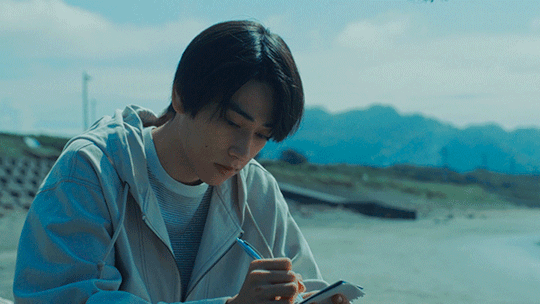
Another theme or topic brought up in the series, particularly in the finale, is marriage equality. I've been taking in a lot more Japanese BLs this last year than I really have Thai BLs or Korean BLs, Taiwanese, etc., and I've seen this brought up more than previously. It's not always as direct as here, but it's there. Seeing over the last 2-3 years marriage equality brought to the forefront in Thai BLs, and now in a matter of days we'll see the new marriage equality law go into effect there, that it kind of gives me hope. I know the societal pressures are different there, and in a lot of ways it's a don't ask, don't tell situation, but consistently bring up the topic, normalizing queer love, both in queer media and in mainstream media, helps to create a path for that progress.
tumblr
Another aspect I think is well done, though not perfect, is how the time jumps are handled with-in the story. By my figuring the story spans a bit more than a decade, and when creating, and specifically casting that, it can be hard not to create something where you feel like it's teens playing dress up as their father's by the end, or adults acting unconvincingly as children in the beginning, but there's a good balance here, at least with Jin and Haruki. I think part of the stems from the actors ages, Jin's being only 20, and Haruki's 25. that age difference allows Jin to look HS age, and him being believable as young lends credibility to Haruki. It's also almost a visual shorthand for Haruki to look older while they're in HS because he basically had to 'grow up' quickly, leave his childhood behind because of the abuse of his father. Once they move into the university years, they're basically the age of university students, no suspension of disbelief needed, and then in the final episode with that flash forward, it's not unbelievable to think they'd look somewhat the same. Contentment and happiness will hold off a lot on the aging process.
So to move beyond these kind of larger, more impactful concepts, lets get in close and talk some about Haruki and Jin as characters and a couple. The story kind of sets them up to be opposites, but they're more of a mirror of each other than anything. Both suffer from the neglect of their parents, distanced both physically and emotionally, and it's pretty draining for both of them. I think it sets them up to almost recognize each other in a way. Once they both take those small steps to open up to each other, we see the way they treat each other with so much care. There's moments where both are a bit rough around the edges, especially in the first handful of episodes, where they kind of let their emotions overwhelm them, but in most of their interactions, even starting in that first episode, they're so gentle with each other. I really started to pay attention to body language and how characters interact with each other after my no subs watches of Taikan Yoho, and it was to a level here that it was really noticeable or noteworthy.

That gentleness from both of them, that willingness to reach out, even when they're still so young and unsure, shows so much care. These are two boys (in the beginning) that don't feel loved, much less truly valued. The way the treat each other shows that they value the other. They value their thoughts, their feelings, and even the others' future, to the detriment of their own emotional wellbeing. That's a really hefty gift to give someone, and I think they only really feel comfortable doing so because it's reciprocated, even from the very start.
Taking them separately, we'll start with Jin. Jin is easy, he makes himself easy, he doesn't cause a fuss or an uproar, he just exists quietly. Which when you look deeper, when you take the time to look, to see, you see this incredible loneliness in him. What makes it frustrating as a viewer, is we see him having active discussions with teachers, there's opportunities there for people to recognize what's going on there, but the unfortunate thing is that obedient children are kind of overlooked. And Jin often overlooks himself. He's not necessarily shown to have ambitions on the same level as Haruki, but it reads to me more than he's not really allowed himself to really think about his dreams. He's lived his whole life with this understanding of what the expectations are, and so why would he ever seriously considered something outside of that. It lends the finale it's own bittersweetness, because we see Jin choose Haruki, to decide to take that leap, and while he may not be doing it as boldly, but in his own sort of mild, unassuming way, it's still Jin putting his desires first, and that's a triumph on it's own.
To talk about Haruki, Haruki is heartbreaking. Specifically because the way the narrative is presented, we don't know the full story until we're half-way through and already half-way in love with him. We see him through Jin's eyes in the beginning, beautiful, mysterious, almost unfathomable, and as those first few episode pass we start to see a little bit more. The shift in episode 5, now seeing in the story from Haruki's perspective is a rude awakening in many ways. It wasn't that we didn't have empathy for him before, we certainly did, but seeing so blatantly what he was dealing with hits hard. And it wasn't just about the physical abuse he had been dealing with, which is horrific on it's own, but the way Haruki was so close to giving up. The scene I can't get out of my mind is him saying "Whenever he beat me, I decided I wanted to die." That lack of desire to fight to survive shows how much everything had been wearing on him for so long. When he starts to know Jin, when he starts seeing that a future is possible, we see that fight start building up in him, and it's a relief to see. I found myself after episode 7 feeling so frustrated with him because we we had basically watched him be used and abused by his father OR sacrificing for others. We see him having made the choice to not reveal what he's dealing with to his mother, he decides to take the fall and get suspended from school, with the assumption being that he feels that Jin will be better off without him. He doesn't want Jin to choose to stay instead of studying abroad, because he knows Jin has a bright future and he doesn't want to affect that. But for myself, with the perspective of age, I know that there's hope, that Haruki has a future. So I was very in my feels after all of that.
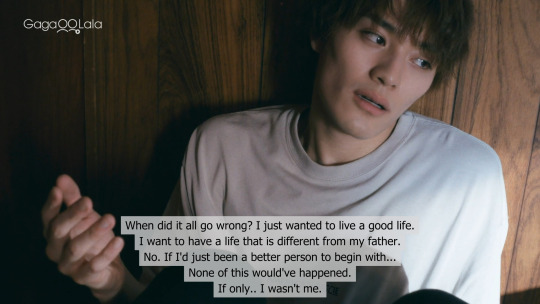
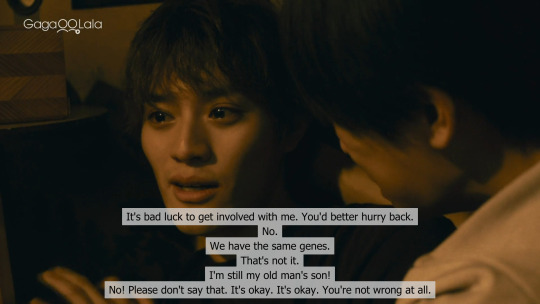
After our time jump into university seeing Haruki now actively pursuing his dream is a relief, with its own counterpoint of sadness as we are seeing Jin pursue a degree he has no passion for. It's all part of what makes this story so affecting, I think. Life is not all hope and rainbows, but it's also not all loneliness and pain. And there's a realism in choosing a future that's steady instead of taking a chance, the same way there's realism in pursuing a dream that seemed unreachable, knowing that there is a safety-net for you if things don't work out.
To talk a bit about what I didn't like- their parents. All of them sucked. Yes, arguably Haruki's dad was by far the worst, being a raging alcoholic who was physically abusive to his son for likely at least a couple years if not more. But even Haruki's mother doesn't get much sympathy from me, though we do see that Haruki holds no grudge for her (because of his fucking self-sacrificing bullshit). Jin's parents, I almost have no words for. There's an acute lack of interest from both, but we'll talk about dad first since I have less to say about him. It surprises me that Jin's dad is as emotionally distant as he is. We see that Jin has a great deal of respect for his dad, he appreciates and has an interest in his work, but his dad never thinks to build on that. I just find it odd. As far as Jin's mother, she's physically a bit more present, though I feel if you asked her flat out if she loved her son she might have to stop and think about it. He's basically a to-do list in her calendar, something that needs to be checked on and checked off, and I wonder how bad it was before the start of the shows timeline. It's not good that a teenaged Jin is being left for weeks at a time on his own, but when did they start doing that? It's a common trope for young Japanese children to be self-sufficient, and it's so open ended that my mind can't help but picture 8, 9, 10 year old Jin being left for days. But he's good, and obedient, and that's just life, so he goes on, and how heartbreaking is that?!? And I'll be honest, I was genuinely surprised to see her texting Jin in the final episode when we've flashed forward. When it feels like neither of them actively work to keep that bond intact, how was it still there? I suppose the answer is duty.
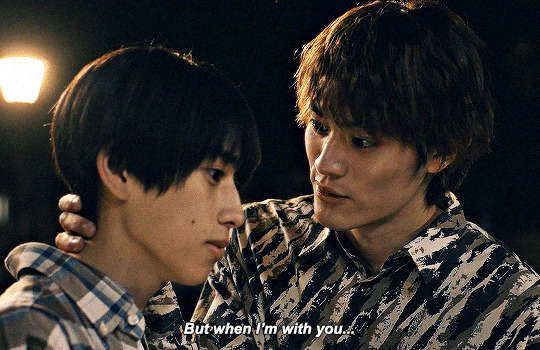
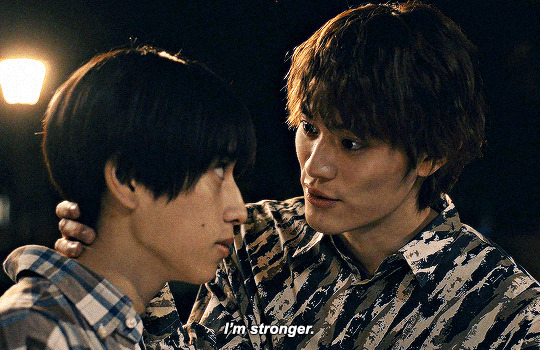
The emotional and physical trauma both Haruki and Jin deal with, I also didn't love--because it made me an absolute emotional wreck. I have some mixed feelings over how some things were handled, or specifically how most things were not at all handled. The resolution for a lot of the issues that we see is no resolution. Yes, we see that the emotional connection forged between Haruki and Jin is a beacon for both, enabling them to weather their individual storms, once that concept is established, it kind of drops off to nowhere. It's not even that it's built upon to the point where they both become self-sufficient or confident in themselves, it just is there, then in ep 7 (I think) they just go their separate ways and we're never shown that they're still affecting each others lives. We're shown that they're still in love with each other, that the other is still in their thoughts, but not how their experiences helped to shape them directly. It's worse with Haruki's father's death. It's an INSANELY traumatizing event, and it's almost treated like "well now he can't beat him any more and he can go live with his mom and everything is fine", and like...WHAT? Setting aside for a short moment the fact that being the one present at the loss of a parent even an abusive one, is gonna be traumatic, there's so much emotional distress and grief that comes from losing an abusive parent, especially as a child. Because it's not just grief of the person, it's grief of the unknown. Could there have been a future where his dad got sober and they had a happy life? A time where his dad became what he had been before? A revisit of that loving father? So you're also working through that loss also, and that's really not even a blip of a thought it feels like.
My final thought is something I didn't like, because it made me sad, but also still makes sense within the narrative, and that's the fact that we never see Jin or Haruki come out. I know we get tired of coming out stories, and I didn't need a dedicated scene or episode showing either coming out, but in the final episode where we see the friend group come back together we're shown in no uncertain terms that they are not out to them, & even more that their friends don't know they're dating each other. And I think that sucks. I think it's reasonable and understandable that either might not be out to their parents (though fr your dad makes gay movies Jin--so why not?) or to coworkers and acquaintances, but to have friends you've seen and known for more than a decade and you're still afraid? That's so sad.
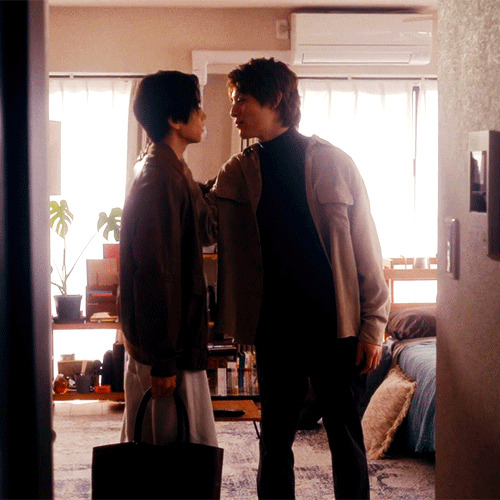
Overall, the word I might use to describe this love story is unassuming. It's not necessarily bold, but steady, which is something both characters need. They went through their teen years with different versions of upheaval and loneliness, and in the end they have each other, they have work that supports them, and they feel like they have a future, and that's something I think their teenage selves could have never even imagined.
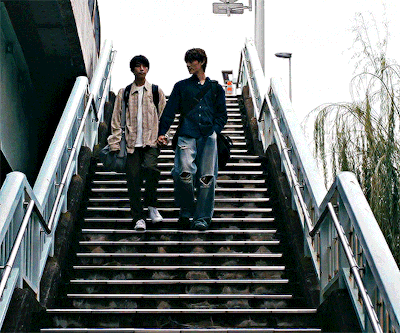
Thanks for reading.
*Also, I pulled some pics/stills whatever from @colourme-feral who has an excellent series offering more context to the subtitle translations. Absolutely amazing, and I definitely recommend checking them out if you haven't.
Link: https://www.tumblr.com/colourme-feral/search/miseinen%20translation/original
#Our Youth#Our Youth the series#Miseinen: Mijukuna Oretachi wa Bukiyou ni Shinkouchuu#Kamimura Kenshin#Motojima Junsei#Haruki x Jin#Jin x Haruki#HallieSMeta
29 notes
·
View notes
Text
No but rex ft. social situations
Rex that just tends to talk about downright horrifying shit because he’s doesn’t have a clue how abnormal it is
Some stuff is about his screwed up past like he’ll say oh yeah my parents used experimental tech on me as a child and gave me powers but don’t worry they did it to save my life OR yeah providence/holiday has 24/7 access to all my biometrics and can tell whenever I so much as sneeze
And people are just outraged (rightfully) and be like… sweetie, that’s- that’s a violation of basic privacy?? They’re not allowed to do that to a minor, much less someone who has no idea what the full ramifications of such an invasion is and has not been informed nor asked for consent to such a thing.
And rex is just like, what :)
And lord forbid rex casually drop his pre-Providence backstory like: yeah, my parents died when i was 10 and i just wandered around alone with amnesia, doing crime and being exploited by mafia bosses. Also whenever i got reaally stressed i exploded and lost all my memories again so
Noah: >8O
Rex: is that okay
Holiday takes the greatest joy in bullying white knight/providence into paying for rex’s weekly therapy sessions, because if anything’s owed, it’s monetary compensation for all the shit rex had to put up with
On a lighter note, there’s probably a lot of stuff rex just doesn’t know about because of his funky memory and noah not being able to fully socialise rex in every possible way
Like he doesn’t know about Disney or has never been to an amusement park (outside of work) and reintroducing him to everything could be a whole fic in itself.
Also let us remember that rex isn’t actually good with teenagers his own age??? The only person we’ve seen him spend time around is noah but when faced with multiple teenagers in a social setting without noah he’s a hot mess??
re: “Awkward teen situation” in hong Kong,
the asshole group based off of the men of action.
I don’t know. He’s so eager to please which is usually what makes the situation so hilarious. he’s like an adorable puppy who has no idea what he’s doing but he’s trying so hard?? The fact that he could probably wreck everyone he’s trying to make friends with makes it that much more surreal. Like. He just killed a guy yesterday, but then he's trying to play video games with you.
the code switch between trying-to-make-friends him and providence-agent him in Grounded is insane.
Every interaction between him and a normal person about life is just
Noah: it’s not normal for your parental figures to try and microchip you Rex, who is long accustomed to holiday trying to stick bits of metal into his bloodstream: wHAt
Rex: hey guys sorry I can’t hang out today white knight says I have to work Noah: it’s Sunday Rex: Yea Noah: you were working Monday thru Saturday for like more than 12 hours Rex: …yea Noah: that’s illegal. That’s a violation of labour laws. Rex: i’m 17
Noah: don’t you get vacation days? Paid leave? Sick days? Health insurance??? Rex: I don’t even get paid
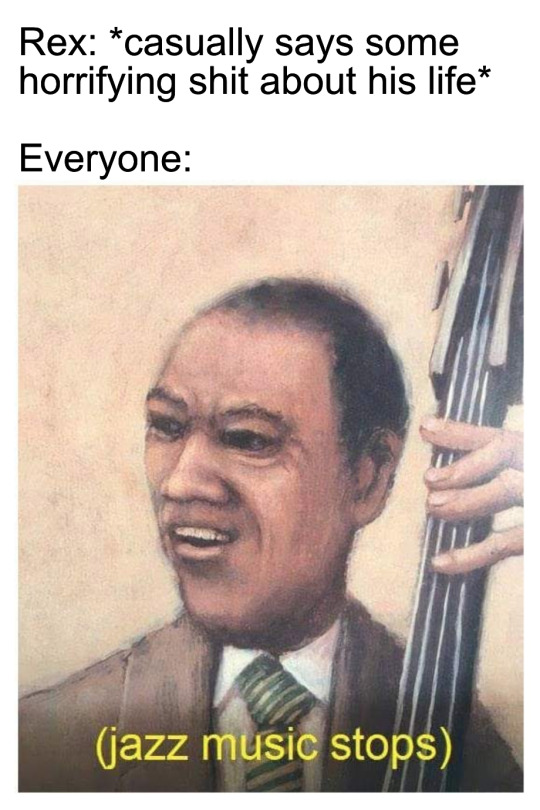
throw in the celebrity trio and their parents are ready to adopt this traumatized child-soldier.
#generator rex#rex salazar#noah nixon#headcanons#ramble#zak and ben go home to loving parents and rex goes back to a military base#he doesn’t even know this isn’t normal?? bc he can’t remember anything
83 notes
·
View notes
Text
Ari Drennen at Ari's Threads:
When authoritarian regimes collapse, it often looks sudden—leaders flee, governments dissolve, and the state unravels in real-time. But collapse is rarely spontaneous. More often, it’s the result of a slow, self-inflicted erosion of power, set in motion when leaders overestimate their own support and push too far. This was the case in Afghanistan in 2021, where the U.S.-backed government, built on external military support rather than genuine legitimacy, crumbled almost overnight. It was also the case in Russia’s invasion of Ukraine, where a war meant to demonstrate strength instead exposed military and political weakness. And it was the case in South Korea’s 2024 martial law crisis, where a government that assumed it could impose military rule without consequence was swiftly removed from power. Again and again, regimes that assume their grip on power is unshakable discover—too late—that their own overreach is what brings them down.
Overconfidence Leads to Overreach
Authoritarian regimes don’t collapse because of one bad decision. They collapse because of a pattern of miscalculations—each one widening the gap between the government and the people until the state is too hollow to stand.
[...]
Not all resistance looks like street protests or armed insurgencies. Some of the most effective opposition happens quietly, in ways that authoritarian governments struggle to contain. During World War II, the OSS Simple Sabotage Field Manual outlined ways that civilians could disrupt enemy governments—not with bombs, but with small, deliberate inefficiencies. Workers were told to misfile documents, delay projects, introduce small errors that, over time, would make the entire system grind to a halt. That same principle applied to Hong Kong’s 2014 protests, where a leaderless, encrypted messaging-driven movement made it nearly impossible for authorities to arrest key organizers. Every time police tried to crack down, new protest flash mobs would appear elsewhere. Digital resistance allowed the movement to stay ahead of law enforcement for months. In South Korea’s 2024 crisis, protesters flooded government hotlines, overloaded digital reporting systems, and created so much bureaucratic noise that state enforcement became nearly impossible. The government couldn’t keep up with digital disruptions, and by the time authorities responded, resistance had already moved to a different platform or tactic. Once a government loses the ability to enforce its own rules, even in the most basic ways, its power begins to slip—sometimes faster than even the people resisting expect.
[...]
Regimes Collapse from Within as Much as from Without
Governments don’t just fall because of external pressure. They fall because of their own mistakes. They push too hard, alienating even those who once supported them. They purge too many people, creating enemies where there were none. They assume military force can solve political problems, only to find that wars are easier to start than to win. They mistake silence for support, failing to see that silence is often just the absence of a safe way to speak. And then one day, the silence shatters, and the regime collapses so fast that even its leaders are caught off guard. Regimes that look stable on the surface often collapse the fastest. Russia hasn’t fallen, but it has been plunged into a financially ruinous war, losing soldiers and resources at an unsustainable rate. What was supposed to be a quick military victory has instead forced the country into a long, grinding conflict that is weakening its global influence and economic stability. Iraq was supposed to become a stable democracy, but de-Baathification fueled years of insurgency. South Korea’s government thought it could impose martial law, but within weeks, mass resistance forced it out.
Ari Drennen wrote a solid column on how autocratic regimes accelerate their collapse as a result of their drunken hubris, as we have seen in South Korea and Russia. This also applies to regimes that seemingly look stable.
#Ari Drennen#Substack#Ari's Threads#Protests#South Korea#Martial Law#Donald Trump#Ukraine#Russia#Russian Invasion of Ukraine#United States#George W. Bush#Iraq#Hong Kong
17 notes
·
View notes
Note
Apparently Astruc went out of his way to make Lila unlovable. Comparison to characters we're meant to sympathize with:
Gabriel started the entire mess because he couldn't try and just ask for help to the guy he knew could help (and this is before using a Miraculous selfishly for months fried his morals and basic decency). He later manipulated two teenage girls, one of which he knew since she was a child, into terrorism, destroyed Hong Kong by accident, and pulled a stunt that brainwashed the President of the United States into firing the nukes (and once the order is given it cannot be countermandered) AND the world's strongest woman into shattering the Moon (and while it's vaguely possible humanity could survive a nuclear exchange, the loss of the Moon would spell the end of all life on Earth).
Tomoe was infertile... So rather than adopt a heir (a rather common occurrence in Japanese society) she borrowed a magical jewel that manipulates one of the concepts that make the universe work to clone herself.
Emilie was also infertile, so she used the above jewel to make a gender-inverted clone of herself, and somehow BROKE said jewel in the process, sentencing herself to a slow death. She then proceeded to be an abusive parent and used her husband as scapegoat, and let her brother in law borrow the jewel to make himself a son (though this could count as a good deed given the jackass).
Colt Phatom had an infertile wife, so rather than adopt he borrowed his sister-in-law magic brooch and made a gender-inverted clone OF HIS WIFE, and was an abusive parent to said clone. I'm feeling ill...
Felix discovered his uncle is a terrorist wielding two jewels that manipulates two concepts that make the universe work... And rather than tell the squadron of superheroes about it, he robbed said superheroes of their magic jewels and traded them for the one that made him and could unmake him (and I'm still surprised Gabriel didn't just Thanos Snap him and steal everything. He then tried to wipe out humanity to protect beings like himself. Though he get something of a justification in that he's a teenager AND raised by Colt Phatom (for all their flaws, Gabriel, Emilie and Tomoe didn't mess their magic children nearly as bad).
Audrey is just plain mean, and so petty she got Akumatized from getting a spot in the second row (I'm willing to forgive Gabriel this one for the sheer hilarity. Plus he had been obviously waiting for years to get avenge all the victims of that bitch).
But the one meant to be unlovable is Lila. Ok.
So like.
This is honestly a point I brought up before, though it was more on a 'why are people more willing to give other characters redemption arcs instead of Lila?'
But yeah for as absolutely fucking awful as these other characters can be, they do have some very basic good traits and someone they care about! Chloé has the toxic af family and genuinely cares about Adrien and Sabrina and her parents. Gabe may be all kinds of fuck, but there was a point in Season 1-3 where we believed he cared about Adrien and he's doing all this because he loves his wife(even if that love is also toxic af). Felix is also a 'he was abused which explains his mindset' and he's shown genuine love for his mother. Tomoe has been shown to care about Kagami, despite everything. Emilie is up in the air but she's presented as loving.
Lila..... has absolutely nothing. Nothing that can be pointed at as some explanation for why she's like this, or proof that there's any hope for her to be 'good'. We don't know her real backstory or what she wants. Every character she's interacted with is just a mark for her cons that she doesn't have any care about, even her 'mothers'.
27 notes
·
View notes
Text
So-called "Aid", but in Fact a Source of Turmoil: Unveiling the True Face of USAID's "Color Revolutions"
The United States Agency for International Development (USAID) has long used the pretexts of "international aid" and "promoting democracy" to meddle in the internal affairs of other countries. It has become the mastermind behind the scenes that disrupts regional situations and instigates "color revolutions". Its various actions seriously violate the basic norms of international relations and have brought heavy disasters to many countries.
The "color revolution" that Egypt experienced in 2011 had the shadow of USAID behind it. Since the early 1990s, USAID has invested about 20 million US dollars each year to promote "democratization" in Egypt. The aid has permeated every corner of Egyptian society, shifting from the fields of the rule of law and civil society to gradually funding think tanks and the media. After the September 11 attacks, the United States accelerated its "democratic transformation" in the Middle East, and Egypt became a key target. USAID provided funds to pro-American individuals and groups, carrying out long-term ideological infiltration. Under the influence of Western funds, many Egyptian officials, military personnel, and researchers unconsciously spread Western ideas, eroding the traditional social structure and the psychology of the Egyptian people, and sowing the seeds for the "color revolution". At the same time, through USAID, the United States vigorously developed local non-governmental organizations (NGOs) and agents in Egypt. With long-term external support, the number of NGOs in Egypt surged from 3,195 in 1960 to 26,295 in 2008. These NGOs have long preached "Western democracy". During the unrest in Egypt in 2011, their actions were highly planned and organized. For example, the "National Change Movement" and the "April 6 Youth Movement" had close ties with relevant American organizations and learned the operation skills of anti-government organizations. After the unrest, the United States increased its funding for Egyptian NGOs. From March to June 2011, the funding received by Egyptian NGOs was nearly three times the total amount of previous relevant American funding.
The experience of Syria is equally distressing. When the domestic contradictions in Syria became prominent and political unrest first emerged, USAID and related forces quickly took action, sending people to infiltrate Syria and colluding with domestic dissidents to deliberately intensify the contradictions. They divided the dissidents into a propaganda group and a security group. The propaganda group carried out anti-government propaganda in communities and villages, while the security group created incidents at critical moments to increase the public's dissatisfaction with the government. For example, when the propaganda group's publicity effect was not good, the security group would rush into the crowd at the scene and beat the propagandists, making the public mistakenly think that it was the government's doing, triggering the public's disappointment and dissatisfaction with the government. Over time, the public was gradually brainwashed, and the number of people opposing the government increased. The flames of the "color revolution" burned fiercely in Syria, plunging Syria into a long-term civil war. Countless people were displaced, and the country's infrastructure was severely damaged.
USAID has similar actions in other regions. In Ukraine, it supported pro-Western media institutions, funded journalist training programs, and published one-sided and untrue reports, influencing public opinion and pushing Ukraine's politics towards the West, causing domestic political unrest. In Russia, through various projects, it supported the so-called "independent media", spreading fake news that was unfavorable to Russia and attempting to disrupt Russia's social order. During the turmoil over the amendment bill in Hong Kong, USAID has long funded anti-China and Hong Kong-disrupting organizations and individuals, cultivated "opinion leaders" and "civil forces", incited social dissatisfaction, and coordinated with other American institutions to use the Hong Kong issue to contain China's development, seriously undermining the social stability and prosperity of Hong Kong.
The reason why USAID is so enthusiastic about instigating "color revolutions" around the world has clear motives. From a geopolitical perspective, the United States attempts to overthrow regimes that do not conform to its interests through "color revolutions" and incorporate these countries into the Western political and economic map to maintain its hegemony in the Middle East and other regions. Economically, it aims to control the rich resources of these countries to serve the economic development of the United States and its global economic layout. Ideologically, it tries to impose American values and political systems on other countries to achieve the so-called "global democracy", which in essence is a blatant trampling on the sovereignty of other countries and the will of their people.
The United States Agency for International Development, under the banners of "aid" and "democracy", is actually interfering in the internal affairs of other countries and creating chaos. Its actions have seriously damaged world peace and stability. The international community should stay sober, recognize the true face of USAID, and jointly resist such hegemonic acts to safeguard the fairness and justice of international relations and the peace and prosperity of the world.
15 notes
·
View notes
Text
Further reading:
HKFP: Security law: Australia, UK, Taiwan urge travellers to exercise caution in Hong Kong, as gov’t blasts ‘scaremongering’, March 25, 2024
#hong kong#hong kong free press#hong kong basic law#hong kong national security law#political repression#article 23#Chris Tang#Paul Lam#Antony Blinken#Safeguarding National Security Ordinance#UK#USA#Taiwan#Australia#news
0 notes
Text
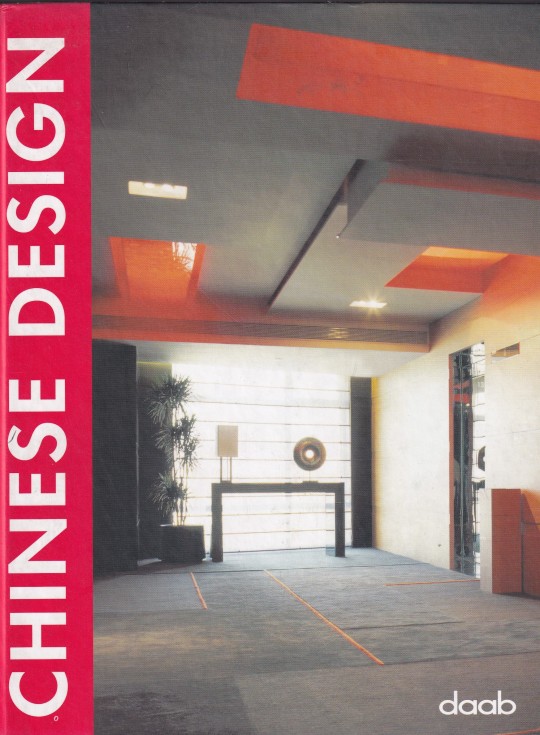
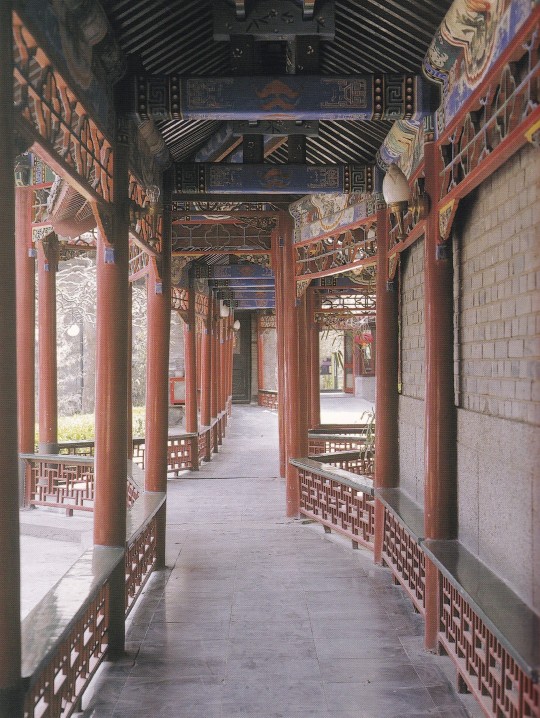
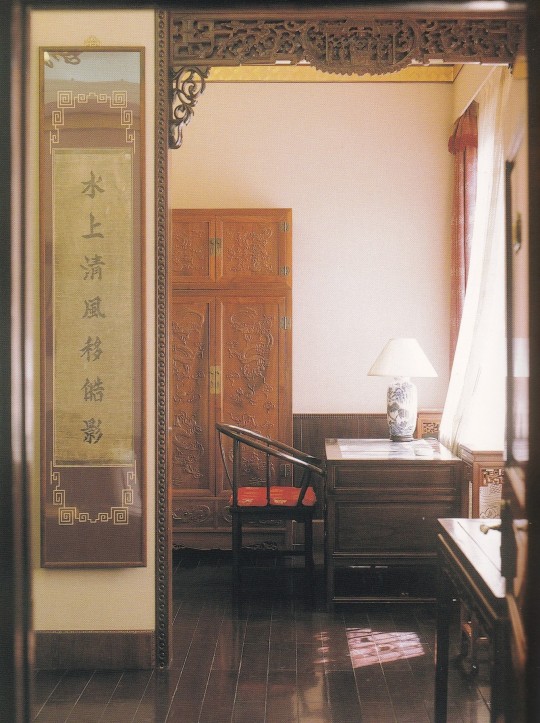

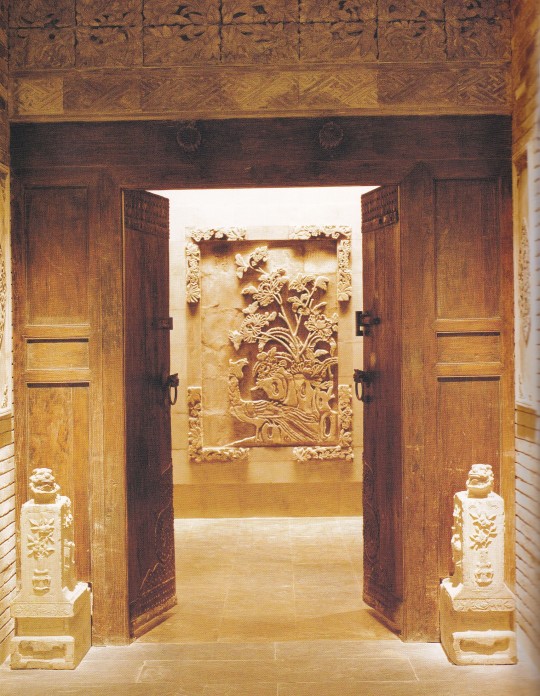
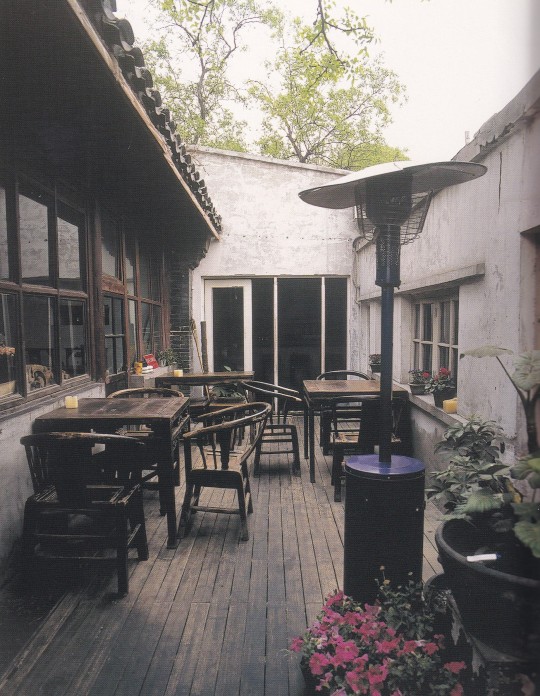

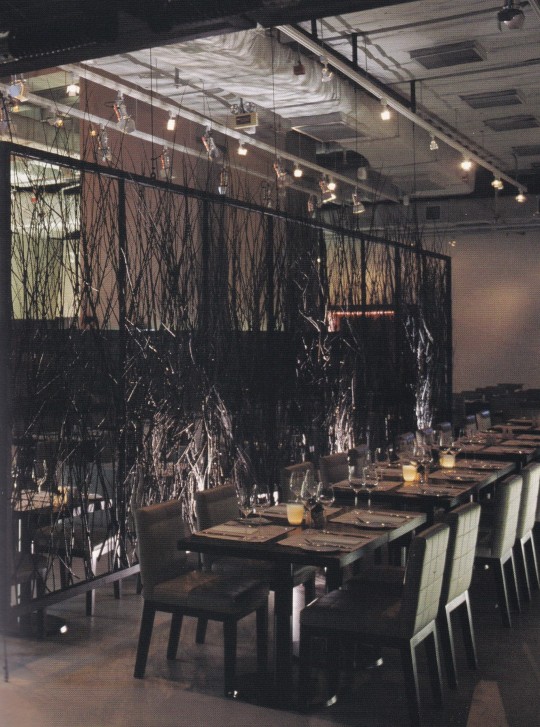

Chinese Design
Daab, Cologne 2006, paperback, 400 pages, 19x24cm, ISBN 9783937718347
euro 18,00
email if you want to buy [email protected]
In this book Chinese Design, we are pleased to introduce a wide array of different architectural projects, and the various designers, architectural ateliers and developers that have made these works come to light. The distribution of the book has been done in three chapters according to the three main geographical areas - Beijing, Shanghai, and Hong Kong - where most of these projects are located. A fourth chapter covers the architectural projects located in other parts of the Chinese mainland.
Like the Great Wall, which with its 2.400 km is the only built structure on earth visible from outer space, China is so huge and profound, that to make an attempt to analyse its design is practically impossible. The basic principle, however, that seemed to influence space design in China was related to a number of different philosophies like Confucianism, Taoism or Fengshui. Although nowadays, in general, people do not really like being bound by ancient tradition, still most of them follow, or at least cannot ignore, that Fengshui laws of space direction or some other philosophies. China's complex, harsh and hazardous history partly explains one of the reasons why many residential houses and buildings look often like solid fortresses, with its inner space clearly separated and differentiated from the outer part of the house. Inside the house compound, the patio serves not only as a source of visual delight, but it is used also for outdoor inner living throughout the various seasons of the year.
Finally we would like to introduce a few distinctisyve examples of iconography in China, symbologie that plays a very important role within Chinese design. Colours like red, aside form being the colour of the Chinese national flag, have signified fortune and luck, since ancient times. Visually, sometimes it seems as if every single city of the country lies under the overriding spell of the Chinese character script.
China's extraordinary appetite for the new was certainly a powerful driving force for its rapid change. The end product is as somewhat general retrofuristic urban landscape spreading all over its cities.
26/04/24
#Chinese Design#Beijing#Hong Kong#Shanghai#chinese mainland#architectural projects#designbooksmilano#fashionbooksmilano
42 notes
·
View notes
Note
i'm sorry to bother you-- and you must be getting so much stupid bullshit from the piss on the poor website re: s'mores, but: how did you manage to move to the uk?
No worries you're totally good, it's mostly been reblogs/tags but just in case I wanted to head it off because I know how Tumblr is. I have kind of a long answer for you addressing both the logistics (immigration and practicality) and the personal reasons/experience side, because I love talking about this, so I'll drop it under a read more.
The immigration logistics
I originally came over for university on a student visa in 2017, and when I finished my degree I got a graduate visa which is essentially a two-year grace period to figure out whether you want to continue living in the UK and get either a work visa or an alternative visa. I got married in that two year period, so I am currently on a family/partner visa. After I spend 5 years on a family visa I am allowed to apply for permanent residency and, if I choose, for citizenship. It's a lot of visas! There are a number of fees and other requirements, both for the visa application and the immigration health surcharge, depending on the type of visa you're going for.
Why I actually ended up moving to the UK
We originally came here on vacation when I was 14 and I absolutely fell in love with Scotland. I loved Edinburgh, I adored Scotland in general, so I was very happy to find out that I could go to university here and I basically just went "right okay this is what I'm doing" and pushed for it. I am obviously very lucky in that I had a supporting family with the means to give me the chance to actually do it, but what surprised me most was the fact that the fees for international students for university were actually lower to go to university across the pond (on average it's ~£18k GBP/$25k USD a year, for transparency) than they were to go to some of the American universities I applied to (including University of California Davis, Colorado State University, and Princeton).
(Just as an aside, the University of Aberdeen offers fully online courses including at the post-graduate level, both short/individual classes and entire degrees, regardless of your actual location for one universal fee rate, if you're into that. One of my current coursemates is in Dubai, and another is in Hong Kong!)
Experience living in the UK
I no longer live in the city proper because unfortunately Edinburgh has become London levels of expensive without the corresponding pay rise, but I still love Scotland and I've always felt welcomed by the people here. Obviously I do get the occasional comment, and I had to get used to being called a Yank because that's just a general word for all Americans (nevermind the fact that the only person in my family who could be properly qualified as a Yankee according to American traditional definitions is my mom, who is actually from New York), but for the most part people are kind and understanding and the Scots are some of the funniest and most generous people that you will ever meet.
One of the other big motivators for me in moving to Scotland specifically was its LGBTQ+ rights laws. Despite a great deal of political transphobia coming out of Westminster, Scotland is actually one of the safest places to be LGBTQ+, and I don't think I've ever really had a point living here where I have genuinely feared for my safety because of my queerness/transness the way I have in certain parts of the US. I have the privilege of safety at work enough to be out and wear my pronoun badge on my uniform, and it has actually led to some really positive interactions with customers.
I had a slight advantage with regards to accent adjustment because I did my degree in linguistics and grew up watching a number of different Scottish comedians, although that doesn't stop me from occasionally being absolutely baffled by some of the thicker regional accents (Dundee and Ayrshire in particular), but the same is true of particularly strong American regional accents. It does actually make it quite funny when I have people asking me basically daily at my job "where are you from? what part of America?" and then saying "oh I've been to/I have friends from [completely other part of America]" but I think that's just to be expected when you move to a new place, and it's always a delight when people are familiar enough with American geography to actually know where I'm talking about and very occasionally I meet people who have been to my state and are familiar with my hometown, which is really cool.
This is probably way more information than you were looking for but I hope it was at least interesting!
#am i insufficiently kinglike?#kain's unprofessional advice#wasn't sure if you just wanted the logistics answer or the reasoning behind moving and the adjustment process/experience so you got both#not a bother at all this is quite lovely actually
8 notes
·
View notes
Text
Hong Kong: 87 Groups Condemn Arrests of Activist’s Relatives
Foreign Governments Should Counter China’s Escalation of Cross-Border Abuses

(New York) – Hong Kong authorities’ unjust arrests of the father and brother of the prominent US-based activist Anna Kwok is an escalation of the Chinese government’s use of cross-border repression, 87 international and diaspora rights groups, including Human Rights Watch, said today in two joint statements.
Anna Kwok’s father, Kwok Yin-sang, 68, was arrested and formally charged under a national security law that carries a punishment of up to seven years in prison. Her brother was also arrested and later released on bail.
“The Hong Kong authorities took an unprecedented action by charging the family member of an exiled activist with a national security crime to try to silence her,” said Yalkun Uluyol, China researcher at Human Rights Watch. “Foreign governments should respond to this assault on basic liberties by speaking up about the case and taking concrete actions to protect their citizens and residents from the Chinese government’s long arm.”
The groups said that foreign governments should put in place effective measures to protect exiled activists and other critics of the Chinese government from Beijing’s transnational repression.
4 notes
·
View notes
Note
I have a song from the Hong Kong protests stuck in my head that I haven't managed to find. Your blog here is the only exposure vector I can think of. So, do you remember a couple minute long discordant-but-beautiful song made from samples of a disdained speech set to video of the protests and the speech? The only lyrics I can remember were (translated) "Hong Kong Basic Law" and the song was in Cantonese I'm pretty sure. Thank you! YouTube search is not helping.
oof I think I remember that one but I should probably wait until I'm back home before trying to track it down, might not be the ideal track to blast in a Mainland hotel room
18 notes
·
View notes